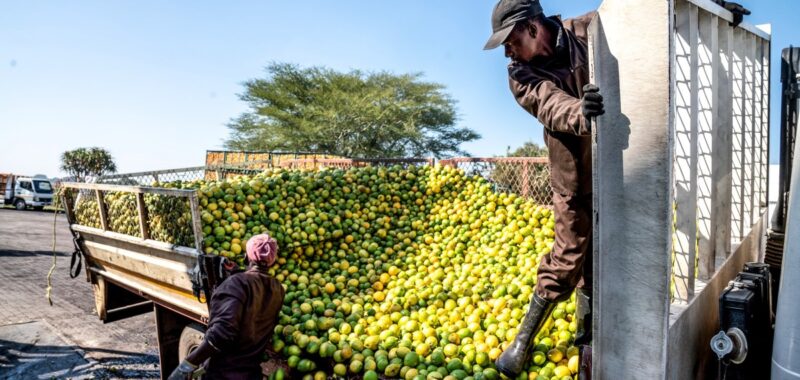South Africa has taken a preliminary step toward filing a complaint with the World Trade Organization against the European Union over its treatment of citrus purchases from the country.
The African nation has requested consultations with the EU at the WTO in a bid to resolve the dispute, the nation’s trade and agriculture departments said in a statement Monday.
“It is our view that the measures by the EU are not justified, proportionate or appropriate,” Ebrahim Patel, South Africa’s trade minister, said in the statement.
Two years ago, the EU imposed requirements including additional refrigeration of incoming fruit from South Africa, the world’s biggest exporter of the produce after Spain, to combat incidences of Citrus Black Spot, a fungal disease that leaves dark spots on fruit. South African producers also have to prove that they have conducted costly spraying of the trees in a bid to contain the disease and undergo inspections at orchards and packing houses.
South Africa shipped $644 million of citrus such as oranges, lemons, grapefruit and mandarins to the EU in 2023, according to the Agricultural Business Chamber of South Africa.
The EU’s move increased costs for South Africa, which maintains that Citrus Black Spot, while causing blemishes on the fruit skin, doesn’t affect the quality and cannot be transferred to other plants at this stage. It has also said that some shipments to Europe have been falsely classified as being tainted with the disease.
The Citrus Growers Association of Southern Africa last year said the measures would cost the industry over 500 million rand ($26 million) in lost exports as it couldn’t access enough specialized refrigerated containers in time to get the fruit to the European market.
“The industry cannot afford the almost 2 billion rand that is needed to comply with the EU’s trade restrictive regulations,” Thoko Didiza, South Africa’s agriculture minister, said.
The EU mission to South Africa acknowledged requests for comment but are yet to respond. The WTO said, before South Africa released that statement, that it’s yet to be notified.
Overall South Africa exported about $2.5 billion of agricultural products to the EU last year and $13.2 billion in total across the world. A third of its citrus exports go to the EU.
The industry has the potential to expand to earn an additional 20 billion rand in exports a year and create 100,000 more jobs, said Justin Chadwick, the CEO of the Citrus Growers Association, in the statement. That won’t happen if the EU restrictions are maintained, he said.

